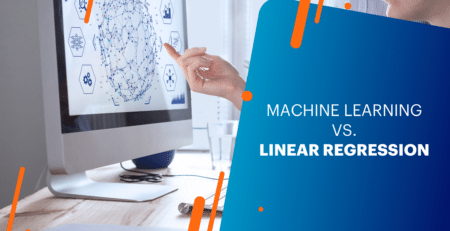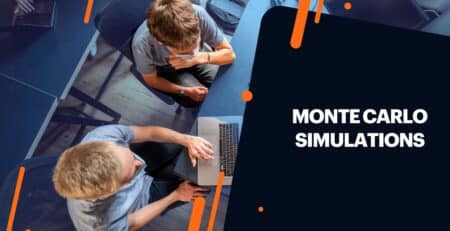Interviewer: We are exploring the future of technology with an interesting subject and topic, and we are addressing Quantum Computing as a field. And today we have a very special guest, Stefan. Welcome! Can you tell us a little bit about yourself and your field or role expertise in this area?
Stefan Ciuclea: I’m honored to be talking to you today. I’m Stefan, and I’m a Senior DevOps Engineer at Suvoda, a global software company specializing in providing solutions for clinical trial management. But I’m also into innovation through Artificial Intelligence and Quantum Computing as part of continuous evolution and new approaches to enrich the ways of several industries.
Interviewer: All right, let’s explore a bit about the aspect of quantum Computing. Could you provide our audience with a brief overview of what Quantum Computing actually is and its significance in the tech industry?
Stefan Ciuclea: Yes, of course. Quantum computing, an idea that emerged in the 1980s, is now reaching an industrial-level usability. So, what is a quantum computer? It’s essentially a system with significantly more power than classical computers.
While classical computers use bits as zero and ones, quantum computers use qubits, which are zeros, ones, the superpositions of these two, and entanglement. In a few words, superposition allows information to exist simultaneously in more than one state or location, while entanglement permits qubits to share the same state.
This immense power enables the execution of more complex tasks, including leveraging artificial intelligence. Major players like IBM and Google are investing in this technology, pushing it to a usable state in various industries, empowering more efficient resolution of complex tasks.
Interviewer: I’m curious to see what are some current applications for Quantum Computing in this sector? What do you think the value is?
Stefan Ciuclea: Quantum Computing holds tremendous value across industries like finance, cryptography, medical field but of course not limited to these. Algorithms developed for quantum computers have the potential to break traditional cryptographic mechanisms, enhancing security for example. They can optimize complex tasks, accelerate drug discovery, and even contribute to leveraging advanced machine learning, in my opinion.
With companies like IBM providing quantum computers accessible via the cloud, research and development in this field starts to thrive, promising significant advancements in various sectors and breakthroughs.
Interviewer: Today’s topic worldwide is cybersecurity. Do you think Quantum Computing has applications in enhancing cybersecurity protocols?
Stefan Ciuclea: Absolutely. Quantum Computing can enhance cryptography methods at some point, potentially making secure communication more robust. It introduces encryption techniques that are incredibly difficult for unauthorized entities to breach, bolstering cybersecurity protocols significantly, of course this being in continuous research.
Take for example the widely used RSA encryption method which can be broken by using the famous Peter Shor’s algorithm, run on a quantum computer. This cannot be achieved using a classical computer due to the complexity calculations that need to be executed.
Interviewer: Really important to see here would be the role of software engineers in driving innovation and adoption in this new area. What do you think the future role of software engineers would be in the adoption of quantum computing?
Stefan Ciuclea: Software engineers can play a crucial role in the adoption of quantum computing. While there are challenges, numerous resources, such as Python libraries like Qiskit from IBM and Microsoft’s Q#, are available for developers to experiment and innovate with quantum circuits. Imagine now that these are like assembly code languages, for a quantum computer, but in a new era.
As the technology matures, more job opportunities will emerge for quantum computer engineers, reflecting the increasing demand across industries. The future likely holds a blend of classical and quantum computing, with software facilitating seamless integration and utilization.
Interviewer:You did mention some challenges regarding quantum computers. How do you suggest we address these challenges to make quantum computers more useful?
Stefan Ciuclea: Addressing challenges in quantum computing requires focused scientific research, particularly in quantum physics. Due to the particles that are manipulated to hold information in the form of qubits, a Quantum Computer environment and where it stands, needs to be continuously monitored.
Currently, researchers are tackling issues like error corrections of qubits, essential for stable and accurate computations. Efforts are underway to develop scalable error correction mechanisms, while solutions after solutions appear in several papers, it remains an ongoing area of research.
Interviewer: Are there any procedures put in place to mitigate those challenges or how do you see them resolved?
Stefan Ciuclea: Researchers are exploring various approaches to mitigate challenges like error rates in quantum computing. While no major breakthroughs have been announced, ongoing research indicates progress in developing scalable error correction methods tailored to the unique nature of quantum systems, rather than focusing on increasing the number of qubits for a Quantum Computer system – this will ensure that the calculations will be more accurate.
Interviewer: Are you willing to predict a timeline for this, or when will we see a mass adoption of quantum computers?
Stefan Ciuclea: I predict that within the next five years, we’ll see significant advancements leading to the mass production of quantum computers, still not in the form of a day to day use for a regular human being, due to its complexity. The pace of development suggests a shorter timeline than previously anticipated. Quantum computing’s evolution may mirror the rapid adoption seen in other transformative technologies, like artificial intelligence, once it reaches a more accessible state.
Interviewer: It seems the industry is moving really fast with this, right? And I’m curious to see the interconnectivity between artificial intelligence and Quantum Computing. Do you agree?
Stefan Ciuclea: Absolutely. The synergy between artificial intelligence and quantum computing holds immense potential for driving innovation across industries. As both fields progress, we can expect to see increasingly sophisticated applications, unlocking new possibilities and reshaping our technological landscape.
Interviewer: A lot of useful insights. Thank you for sharing those. But before we conclude, do you have any final thoughts or maybe advice for our audience regarding Quantum Computing, like emerging programming languages or frameworks?
Stefan Ciuclea: Absolutely. For those interested in Quantum Computing, there are abundant resources available online, including courses and libraries like Qiskit for Python. Understanding the fundamentals of quantum computing, such as logical gates, is crucial for meaningful exploration.
Additionally, if you’re intrigued by this field and eager to go deeper into the subject, don’t hesitate to connect with me. I’m in the process of turning this subject into practical solutions, and I’m here to discuss and collaborate with anyone who shares that interest too.
Interviewer: Thank you very much, Stefan!
Stefan Ciuclea: Thank you so much, too! I’m honored to be part of this.














